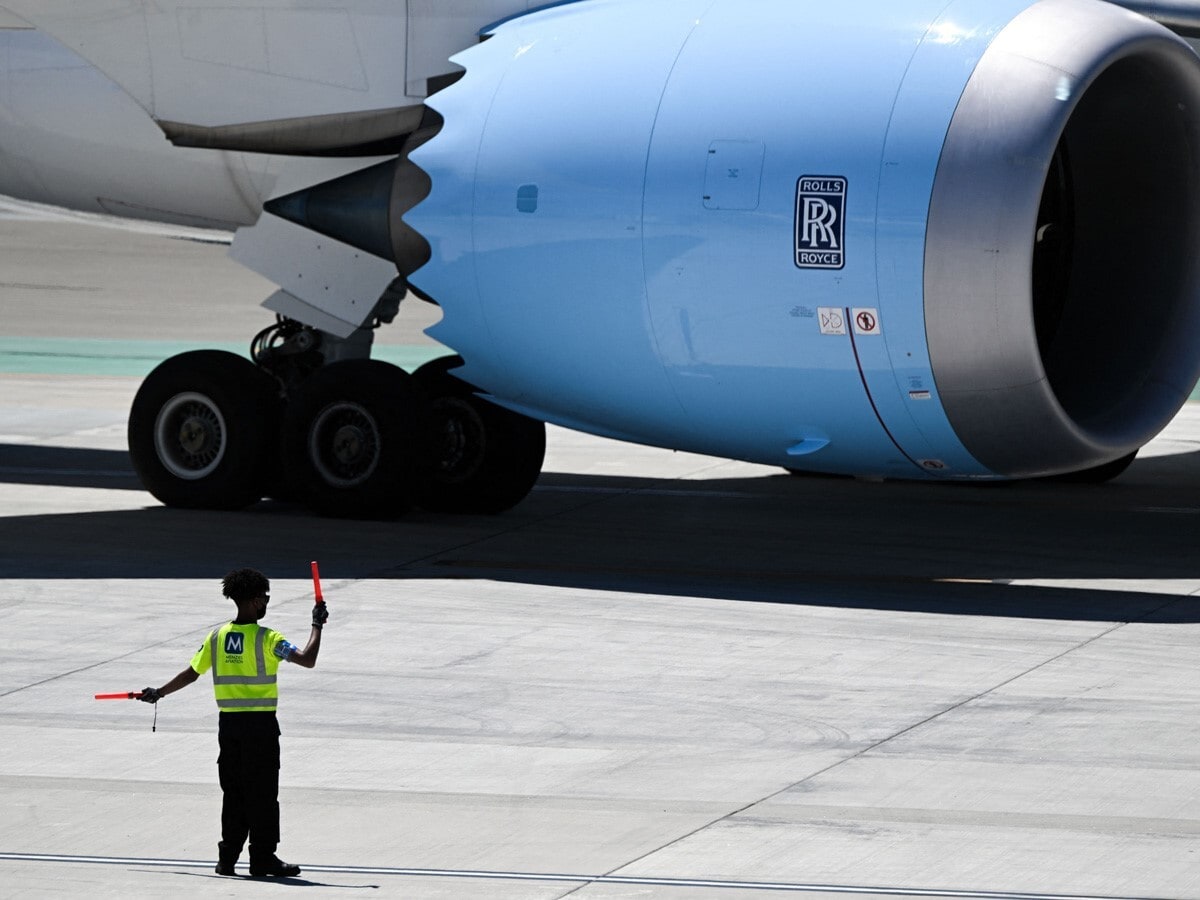Rolls-Royce’s share price was trading for around 240p before the pandemic made mincemeat out of the aviation sector. Since then, the maker of aircraft engines has been restructuring its business and getting back to profit. With the share price now trading for pennies the stock could represent a long-term buying opportunity. We look at the investment case.
The Rolls-Royce [RR.L] share price is yet to recover from the pandemic. The stock plummeted in 2020 and has remained suppressed ever since. But is it a bargain waiting to take off or too big a risk?
In the pre-pandemic era of early February 2020, the stock was trading around the 240p mark. Flash forward to September 2020 and the Rolls-Royce share price was trading just above 34p as the pandemic obliterated demand for aircraft engines. Things were better in 2021 as the easing of travel restrictions helped the shares rally back to 150p by November that year.
However, since that point the stock has been on a downward trajectory, having fallen nearly 40% this year to close Friday 2 September at 75.07p. August was particularly bad for the Rolls-Royce share price as underwhelming half-year results triggered a 13% decline.
Rolls-Royce’s share price in discount territory
August’s declines were triggered by disappointing half-year results, which failed to meet analyst expectations. Underlying operating profits for the first six months of the year were £125m, down from £307m in the same period last year. Underlying losses for the period were £188m, down from a £104m profit. Rolls-Royce suggested that the previous year’s figures, which included a £45m gain from spare part sales in defence, had provided an overly flattering comparison.
Supply chain issues, inflation and the war in Ukraine are likely to remain headwinds. Outgoing CEO Warren East said that coronavirus was still hurting the company, with continued delays in the production of semiconductors needed to make its engines. Cutting ties with Russia has also meant it has had to find a new source of titanium.
Rolls-Royce’s revenue is closely linked to how long its engines are in the air. In the first half of 2022, its engines were in the skies for 60% of 2019 levels. Rolls-Royce expects things to improve in the second half of the year as air travel improves before a full recovery to pre-pandemic levels in 2024. Revenue is expected to see a single-digit gain this year, while underlying profit margin should improve.
An improving business
Aside from a deeply discounted share price the company has a lot going for it. Notably, the group has an enviable £6.5bn order book, giving investors visibility on long-term revenues. Rolls-Royce not only builds these engines, but a substantial chunk of its revenue also comes from servicing them. The group has some hefty defence contracts to buttress the bottom line and operates in a sector that has a high barrier to entry, meaning competition is limited.
Over the past four years the company has undertaken a huge restructuring effort to pay off debt and get back to profit. This has resulted in the company burning through less cash. Outflows in the first half of the year were £68m compared with £1.2bn for the first half of 2021.
Can Rolls-Royce return to pre-pandemic levels?
A return to pre-pandemic levels for Rolls-Royce’s stock may still be a way off. A possible recession and increases in the cost of living could further delay a recovery in the sector, although CEO Warren East said that considering how much the aviation sector has been hit by the pandemic, a major recession is unlikely to have any major impact. The company is also barred from paying any dividends until 2023 as part of the teams of its loan agreement.
It may be a while before Rolls-Royce’s business is operating at full capacity, but the stock’s discounted level could represent a bargain that pays off in the long term.
Two institutional investors added to their holdings during August. Vanguard upped its holding in Rolls-Royce by 450k, taking its total held to 264.11m, while Hargreaves Lansdown added 598k shares to its holding, taking its total held to over 261m — both are among the top five holders of Rolls-Royce stock. Among analysts polled by the Financial Times, Rolls-Royce’s share price has a median 92p target, suggesting a 22.6% upside on Friday’s close.
Disclaimer Past performance is not a reliable indicator of future results.
CMC Markets is an execution-only service provider. The material (whether or not it states any opinions) is for general information purposes only, and does not take into account your personal circumstances or objectives. Nothing in this material is (or should be considered to be) financial, investment or other advice on which reliance should be placed. No opinion given in the material constitutes a recommendation by CMC Markets or the author that any particular investment, security, transaction or investment strategy is suitable for any specific person.
The material has not been prepared in accordance with legal requirements designed to promote the independence of investment research. Although we are not specifically prevented from dealing before providing this material, we do not seek to take advantage of the material prior to its dissemination.
CMC Markets does not endorse or offer opinion on the trading strategies used by the author. Their trading strategies do not guarantee any return and CMC Markets shall not be held responsible for any loss that you may incur, either directly or indirectly, arising from any investment based on any information contained herein.
*Tax treatment depends on individual circumstances and can change or may differ in a jurisdiction other than the UK.
Continue reading for FREE
- Includes free newsletter updates, unsubscribe anytime. Privacy policy





